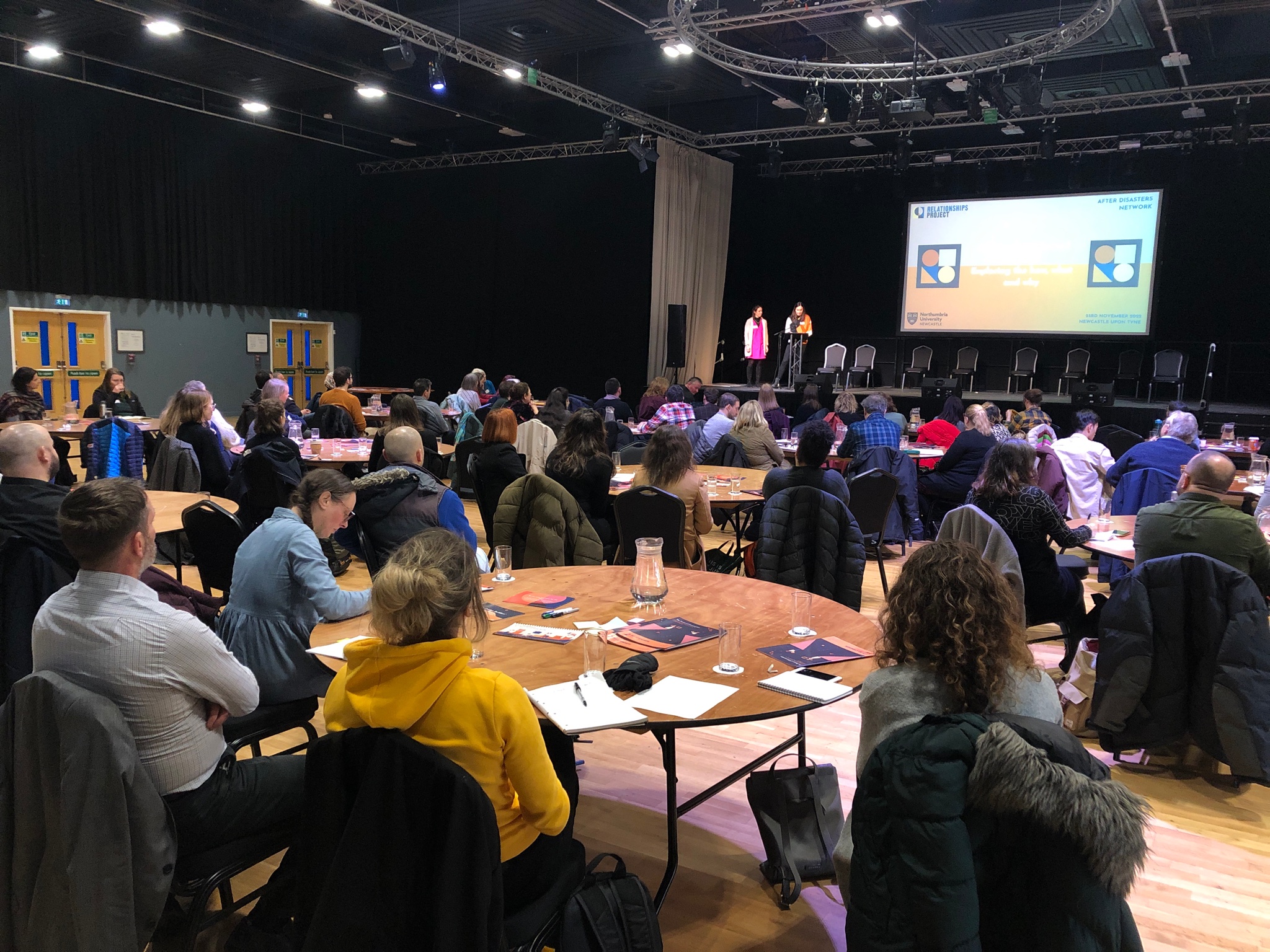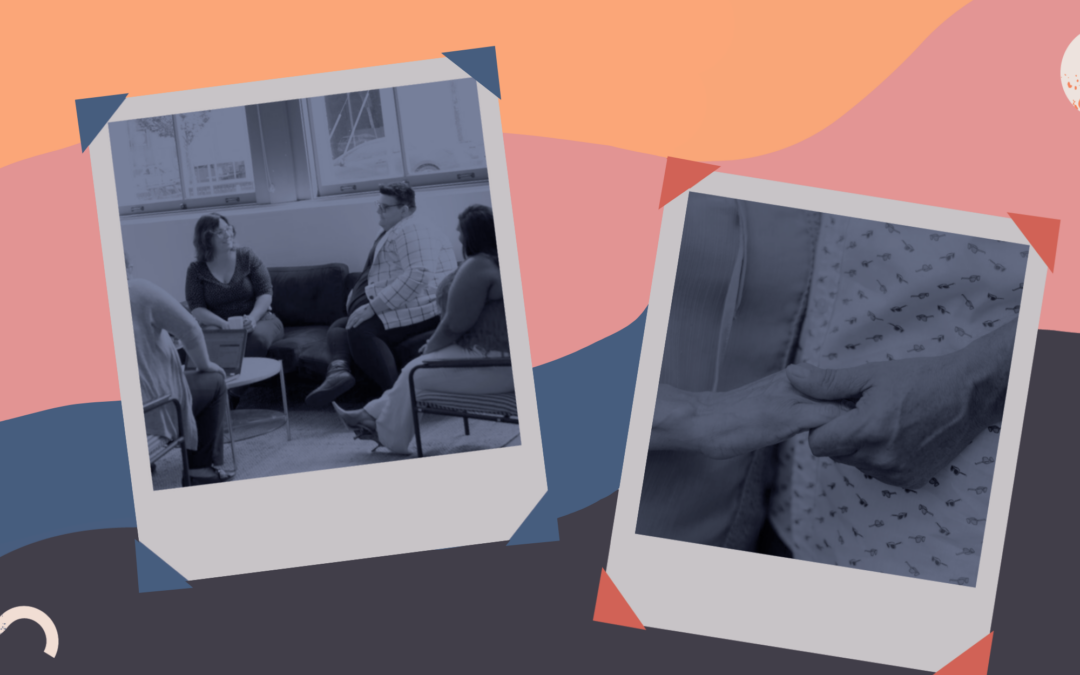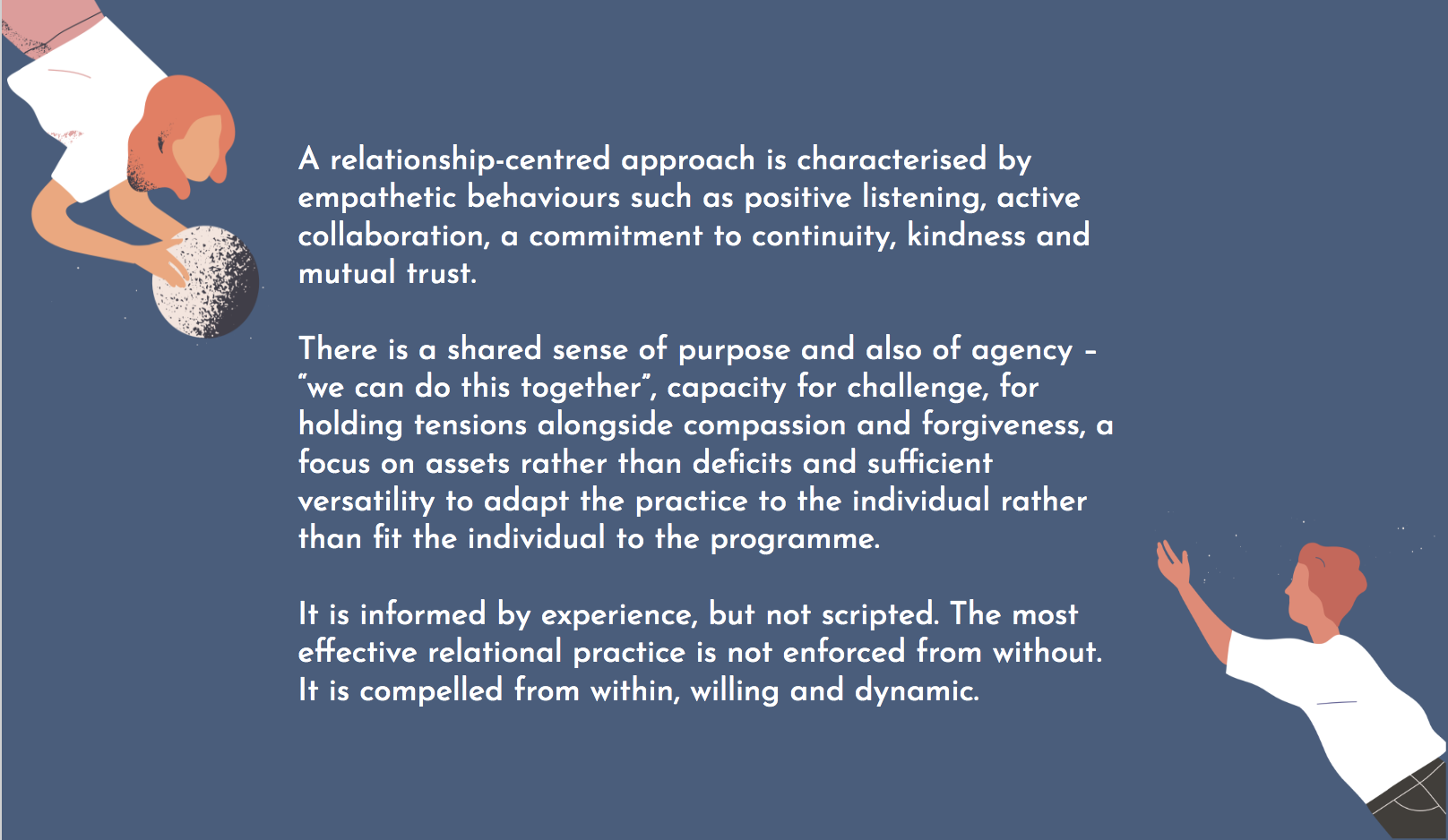In brief
On the 23rd November 2022, 80 relationship-centred practitioners came together at Northumbria University to unpack the how, what and why of relationship-centred practice. We shared some of our key takeaways in this letter and, here, Fabian Pfortmüller responds with his.
Fabian is a community weaver based in Amsterdam and co-founder of Together Institute, a collective dedicated to helping purpose-driven organizations build thriving communities and networks. Fabian is also co-author of the Community Canvas, an open-sourced community building methodology and regularly writes about community.

“My name is Mel and I’m a relationship-centred practitioner!” the lady on stage announced. And then she added: “This is the first time I’m saying it aloud!”, sounding excited and relieved.
I wondered what someone, who had just wandered into the room, might think was happening at last week’s Relationships Project gathering. To me, it felt like a revelation.
The loneliness of being a relationship-centred practitioner
As part of my work I often help create environments for people to find their peers. To feel less alone. To realize there are others who see the world the way they do. But it’s been a long while since I got to experience it myself. And what a gift it is.
If you have been following my writing, it won’t come as a surprise to you that I believe in the power of relationships. I honestly think it’s the biggest undervalued opportunity for us as human beings to create a different, better future. By making warm, caring relationships not a nice to have, but an essential element of how we do and design everything. Life is relationships. But the truth is, even though this is arguably the strongest value driving my work, I don’t quite have language why this approach matters (or even what it is). I just know it does. It feels obvious and true to me.
And yet, while valuing relationships isn’t too controversial a position, I often feel alone in this approach, especially in the professional context. Sure, most people agree, “good” relationships are a beautiful thing. We all have stories of how relationships have made our lives richer (and stories of relationships that did the opposite). But this is different, people often add. This is professional.
First we drive tangible outcomes and then we can sprinkle in some relationship, right? Relationships are considered soft and fluffy, and hence easily dismissed.
Meeting relationship-centred practicioners
This is why the Relationships Project gathering was such a revelation. I met people who not only believe in a relationship-driven approach, but who put relationships first, even when their approach is being challenged by their bosses, their funders, their academic advisors, the general narrative of society. Even when there isn’t budget or staffing. When they have short-term goals to meet, but know that relationships will only pay off in the long-term. They apply a relationship-first approach as social care workers, in disaster preparation and response, in welcoming people from different countries, as academic researchers, and in a myriad of other ways.
Ironically this work feels rather countercultural. And it needs courage. One practitioner spoke about “standing your ground”, another said “don’t be frightened to know that this work matters”.
When hearing their stories I felt assured that my work mattered. I felt seen. I was inspired by their courage and the clarity of their conviction. I found my people.
Take-aways
The conversations at the gathering also started to give me language to what I have been feeling for a long time, but couldn’t quite put into words. Here are some short examples:
This is a craft that deserves to be respected
Rich Bell put it beautifully: Often people assume that relationships just take care of themselves. But doing things in a relational way “is not unskilled work”, it takes intention and know-how. It’s a really powerful craft. And some people are really good at it.
What if we valued these people and their skills? (And what if we – collectively – became good at relationships again?)
We need to develop more precise language
I don’t quite know how to talk about this and it turns out others don’t quite know either. Because this is a nascent (or rather reemerging?) field, we don’t have nuanced language yet. What differentiates a “good” relationship from a “bad” one? Do we just mean relationships among humans? And do we want more than just “nice” relationships? As David Robinson put it: “This isn’t just about being nice, it’s also about rigor”. In professional relationships – think of a doctor for example – we want both warmth and competence.
The point is: We need to develop a much more intricate lexicon of shared understanding to deepen this work. That’s why the Relationships Project is so powerful. They are starting to offer up definitions and introducing “new” terms, such as “relationship-centred practice”.
We know relationships create results. Now we have to learn how to make the best case for them.
Mel Smith (whom I mentioned at the very beginning) pointed out that as relationship-practitioners we often hear the feedback “that somehow being more human makes you less professional or less likely to achieve outcomes”. As practitioners we know that, in fact, the opposite is true.
The big question will be: How do we make the best case for people who don’t get it? Can we convince them intellectually or do they have to experience it?
The HOW is to important
One of my biggest take-ways from the gathering was that how we do things matters just as much as what we do. And the Relationships Project truly embodied this by putting so much care into organizing this gathering, by their generosity of spirit, by their true openness and warm welcome. Sure, we all were there because we want to make the relationship-centric approach mainstream.
But ultimately I will keep showing up to this project, not because I’m excited about the outcome, but because of the kindness and warmth in that room.
I’m Fabian and I’m a relationship-centred practitioner!
Read more

A birth and a knock to the head
When we’re unwell, how does the compassion that healthcare workers give (or fail to give) shape our experiences and health outcomes? In this blog, Rosa explores these questions, and shares two personal experiences that have shaped her thinking - (accidentally) giving...

